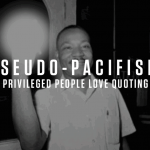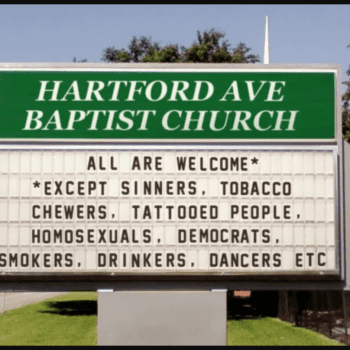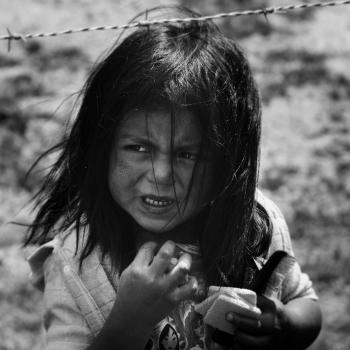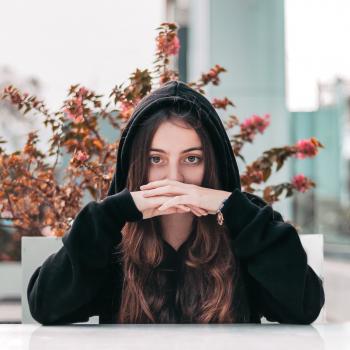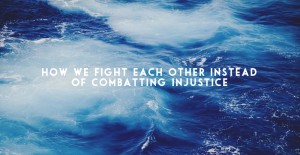 I think fighting injustice is, unfortunately, the willingness to step into the darkness, all while shining light into its depths. In this time, it’s far too easy to get lost, losing one’s ability to navigate and process their fear of this darkness before it turns into a divisive reactionary violence (e.g. verbal, physical, emotional, etc.).
I think fighting injustice is, unfortunately, the willingness to step into the darkness, all while shining light into its depths. In this time, it’s far too easy to get lost, losing one’s ability to navigate and process their fear of this darkness before it turns into a divisive reactionary violence (e.g. verbal, physical, emotional, etc.).
I must admit, it’s sometimes easier to react, rather than to slow down and allow one’s eyes, body, and temperament to adjust.
I’ve found that in this, light or darkness, we can all unnecessarily lash out even our friends or allies, all the while wasting energy on destroying each other rather than combatting injustice. Please know upfront, that I’m not inciting nonviolence as “No society has ever achieved peace without incorporating injustice into its harmony [1].” I’m just saying, maybe we should think twice before we take a swing, to make sure that we’re not hitting each other, or if there’s another more strategic way out (which is, of course, hopefully nonviolent).
The question I’m posing (and somewhat answering) is whether or not there’s any way possible for us to become a cohesive and collective unit that’s striving towards a similar cause, while not sacrificing the end goal of one’s own interest?
I, personally, think that it is possible to create dignity for others while simultaneously achieving success for oneself. In fact I don’t think success is possible without the help and unity of the other. In the words of Reinhold Niebuhr together we “achieve a more vivid expression and a more cumulative effect when they are united in a common impulse than when they express themselves separately and discreetly.”
If you’re a sports fan, you know how hard it is, and how genius Phil Jackson was, to create and then re-create the 90’s Bulls – a cohesive unit in which individual players (e.g. Dennis Rodman) sacrificed their ego (most of the time) in order to win a championship. In a similar, yet larger and more violent arena, we see how incredibly tough it is to create an effective and cohesive movement of people striving to win this “war” against injustice.
Unity, or the lack thereof, is the reason why I write posts on “How to call people in even as we call them out?”, why “White Privilege is a Myth,” (it’s not a myth, it’s a misunderstanding, check out the post and you’ll see what I mean), or that Rachel Dolezal can in fact have had an experience that is merely an ontological symbol pointing to human pain.
I write these because it’s not until we realize that we all (well, 99% of us) have the same end goal, and very similar causes that are handed out differently that we will be able to find freedom, equality, or a truer version of success.
In the words of the great philosopher Tupac Shakur, “The power is found in the people,” that is, until the larger concentration of people are divided and separated against one another, into smaller, and therefore weaker, cohorts. Oppression, despite it’s race, religion, or nationality, is focussed on one single and cohesive agenda, to keep the majority down, we will not be able to unite.
There’s this false idea that in order to be successful, one has to be above, it leads to a life of dissatisfaction at the cost of unnecessarily perpetuating a mass Americanized capitalistic oppression.
To put it another way first-class seating, it’s not about having more leg room or the comfort or a nicer seat, so much as it’s about making a nonverbal statement that you’re in a “higher class.”
“This is the thinking that, ‘First class isn’t better because of the seats, it’s better because it’s not coach.’ (Several airlines have tried to launch all-first-class seating, and all of them have stumbled.)” – Seth Godin
Similarly, the more I think about it, the more I come to believe that it’s not about race, religion, or nationality, it’s about power; it’s about which race in whichever context gives you more of a falsified sense of value, worth and control.
For instance, to bring it back into reality, racist poor or middle class whites, your oppression (whether or not you see it) makes your existence adjacent to that of any “slanted eye” or darker skinned person you believe yourself to better than.
Hating a black, hispanic, or Islamic person to gain more power is like when a poor or middle class white person who votes republican in order to stick it to that “Damn liberal!” You’re only supporting an agenda that goes against your own interests.
It’s vital that we understand that one is not [necessarily] more oppressed and that they’re just being oppressed differently. That precise and very calculated strategies and subversive propaganda has been implemented to divide, invert, and eventually control us. I know this sounds very “Machiavellian,” but that’s only because… it is.
Ironically, in the words of Martin Luther King Jr., not quoted much by the upper class (or anyone for this matter),
“You are put in the position of supporting your oppressor, because through prejudice and blindness, you fail to see that the same forces that oppress Negroes in American society oppress poor white people. (Yes) And all you are living on is the satisfaction of your skin being white, and the drum major instinct of thinking that you are somebody big because you are white. And you’re so poor you can’t send your children to school. You ought to be out here marching with every one of us every time we have a march.”[1]
When I read the bible (or if the bible’s not your thing, some of the greatest philosophers, and social psychologists) the vast majority seem to echo the sentiment that sharing and/or creating experiences that lift others does not diminish the value of life, but actually increases the value of life (for both parties).
So then how do we unite as a single cohesive unit, combatting similar causes, without sacrificing one’s own overall agenda? I think it starts with a simple question of, “What, in this instance, will build us both up?” When we find the ability to process our fear, before it turns into an unproductive reaction, we’ll also find the answer, an ally, or someone that is just like us…
[1] Reinhold Niebuhr
If you enjoyed this read head over and like my Facebook page


